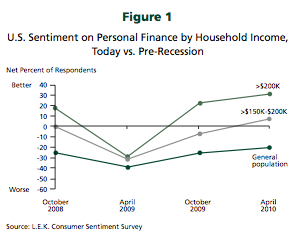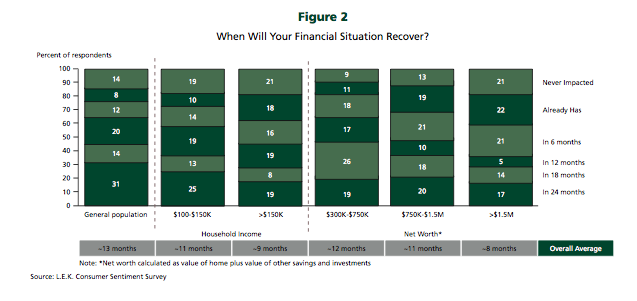Articles and News
Affluent, More Optimistic, Expected to Spend | November 29, 2010 (1 comment)

New York, NY—It’s not a news flash that high-income consumers historically make a disproportionately large contribution to domestic spending, nor that they tend to be less price-sensitive than their non-affluent peers. Neither is it news that when the economy tanked in 2008, the affluent sector grew as pessimistic and tight-fisted as the rest of the population.
But now that signs of recovery are on the horizon, a report by the global strategy firm L.E.K. Consulting shows that the affluent sector is regaining its optimism and, as such, loosening the purse strings—potentially enough to help pull the rest of the economy up.
The Centurion has noted this positive trend in conversation with many high-end retail jewelers for much of this year, especially those in areas of the country that weren’t as hard hit by either the recession or housing crisis. The L.E.K. Consumer Sentiment Survey, meanwhile, released in June 2010, found the general population still felt their personal economic recovery was a year or more away, while the affluent felt they’d be returning to normalcy by Q4 of this year; i.e., now.

Not surprisingly, the return of affluent consumer confidence has tracked the relative rebound in the equity markets, with the most affluent soaring back along with the S&P 500. According to the L.E.K. research, households earning more than $150,000 annually are the only demographic who claims to be spending more today than prior to the recession, while the general population has decreased spending by more than 4%.

Affluent consumers, too, are leaders in shaping attitudes, says the study. The percentage of affluent respondents who identify themselves as “passionate” about a particular trend is typically more than 7% higher than the general population. The top trends that affluent consumers align with include products that save time and address the needs of hectic lifestyles, “green” products, online shopping, natural (i.e. organic) products, and increased influence and purchasing power among teens.







